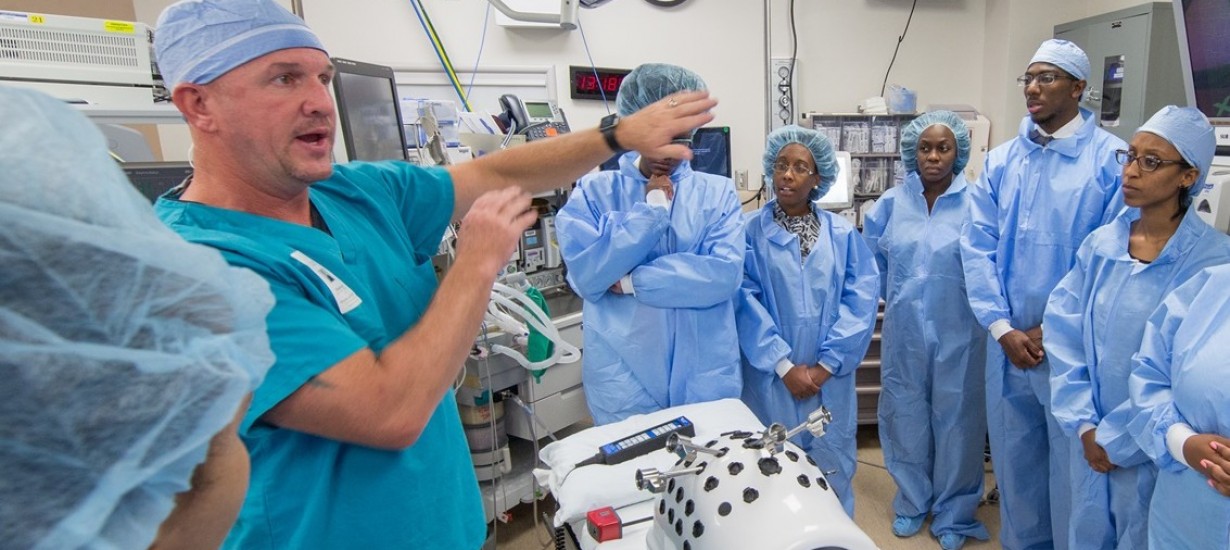Bond-Issue Approval Boosts Medical School

North Carolina voters overwhelmingly approved a bond referendum on Tuesday that will bring $2 billion to the state’s public college campuses — including most of the funding needed for a new building for the medical school at Carolina — and to various infrastructure projects.
About two-thirds of the voters said “yes” to the Connect NC referendum.
“I am so grateful to North Carolina’s voters for supporting higher education in such a wonderful way,” said Chancellor Carol L. Folt. “It is a strong endorsement for the importance of having the very best facilities at Carolina to train more North Carolina doctors for our state.”
William Roper, dean of the medical school and CEO of UNC Health Care, said the population of North Carolina is getting bigger — and older — and the graying of baby boomers will continue to impose a growing demand for health care and doctors for years to come. About a third of today’s practicing physicians will have retired by 2020.
“I am thankful for the North Carolina voters and their support of our mission to train the next generations of physicians, clinicians, scientists and health professionals,” Roper said. “A new medical education building will provide an environment where today’s brightest minds can expand what is possible in medicine.”
UNC will get $68 million from the issuance of bonds for a building that is expected to replace Berryhill Hall. The University will have to raise an additional $22 million to complete the project. Berryhill is filled with big lecture halls that are not conducive to the kind of hands-on learning students need to simulate the real-world situations they will face as practicing physicians.
When Berryhill opened in 1970, the medical school had 353 students. Today, the school trains more than 2,400 inter-professional health care providers and medical students.
To meet the state’s needs, the medical school has been approved to increase the number of students in each entering class to 230 from the current 180. Berryhill, however, is unable to teach that many; the new building would be able to accommodate the increase.
Throughout the campaign, Gov. Pat McCrory and other bond supporters emphasized that it had been more than 15 years since voters last had a referendum for general obligation bonds; in 2000, N.C. voters approved the largest bond issue for higher education in U.S. history — $3.1 billion for the state’s public universities and community colleges. Since then, the state’s population has grown by 2 million people.
McCrory has said no tax increases would be necessary to finance the bonds on this week’s ballot, saying the state would pay for 50-year assets with 20-year, low-interest financing.
More than half of the bond money — $980 million for UNC System campuses and $350 million for community colleges — will go to support higher education.
Besides funding building construction or renovation on nearly all of the campuses in the system, the bonds will pay for projects in 76 of the state’s 100 counties, with $75 million earmarked to update facilities at 45 state parks. Another $25 million will be spent to upgrade support facilities, trails and exhibits at the North Carolina Zoo in Asheboro.
The bond also provides $309.5 million in statewide water and sewer loans and grants to meet the demands of a growing population and another $79 million in construction for National Guard Regional Readiness Centers in Burke, Guilford and Wilkes counties.
More online…
-
McCrory, Folt Discuss Problems, Promise of Medical Education and Proposed Bonds
February 2016 news report - Proposed Bonds Would Replace UNC’s Aging Medical School
January 2016 news report - Yours at Carolina: Educate More Doctors, Save More Lives
“Yours at Carolina” column by GAA President Doug Dibbert ’70, from the January/February 2016 Carolina Alumni Review
